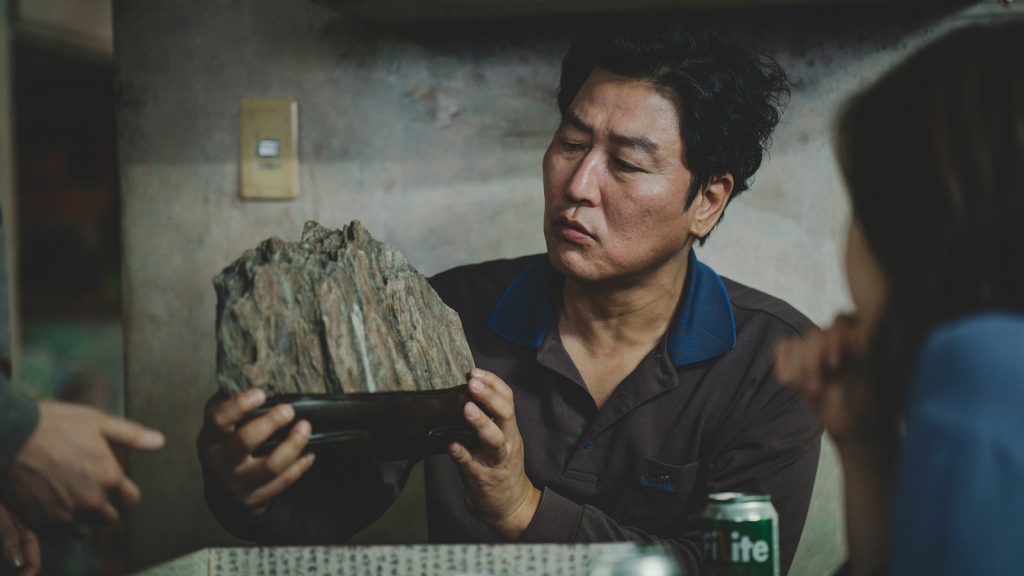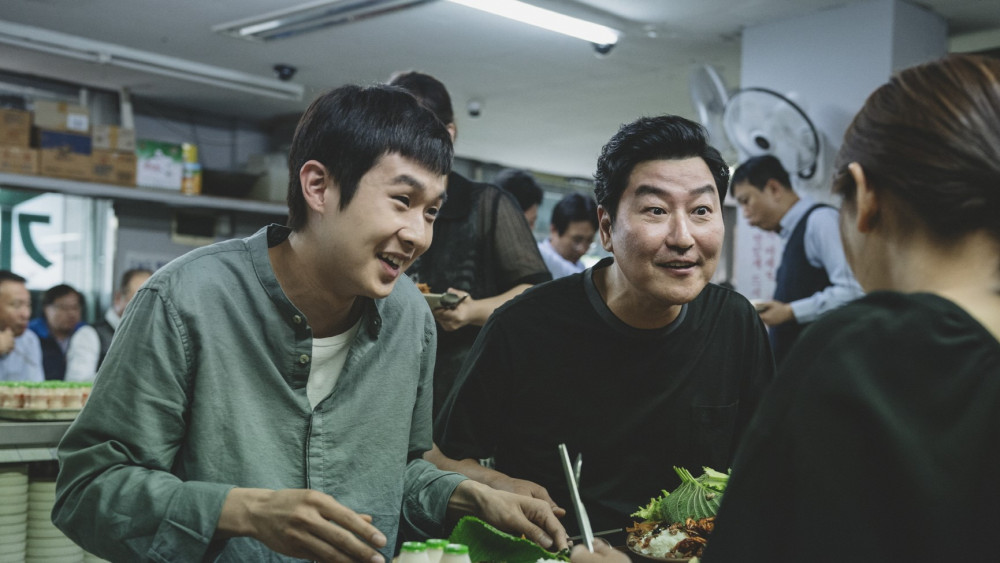The Cannes Palme d’Or winner hits Australian shores particularly early this year. Only 33 days after the end of that august festival sees the debut of Bong Joon-ho’s Parasite, which received top prize. It has some surface similarities to last year’s Palme d’Or winner, Hirokazu Kore-eda’s Shoplifters, in that both feature a family of grifters trying to ply their trade while evading the law. The actual truth of the matter, though, is that the only movies that are truly similar to Bong’s movies are Bong’s other movies. And only because the one constant is to expect the unexpected.
The maker of such singular visions as The Host, Snowpiercer and Okja has given us a new feature that most closely resembles Snowpiercer in its thematic preoccupations. That internationally-casted epic was a satire on class warfare, as well as about ten other things, and so is Parasite … as well as about ten other things. Bong returns to an all-Korean cast for the first time in a decade, but his experiences out there in the world have only fortified him. As ever, he’s a master of wildly divergent tones, ultimately giving us both a super fun ride and something heavier to ponder.
The story focuses on a Seoul family living at the poverty line in a “semi-basement,” a dwelling whose windows allow them to see people at street level … usually urinating after too much drink at the local bar. They’re trying to make ends meet by folding delivery boxes for the nearby pizza place. However, the teenage son, Kim Ki-woo (Woo-sik Choi), is intelligent and has legitimate prospects, making him a good candidate to fill in tutoring a rich young girl when his mate, her current tutor, goes abroad for a year. The thing is, he has to pretend he’s a university student so the family will hire him. Fortunately, his sister Ki-jung (So-dam Park) is a first-rate document forger. And once he gets into the house, a sleek jewel of architectural design, he senses all the other ways he and his family might be able to take advantage of these trusting rich saps.
That’s an over-simplified synopsis of the film, by design. Parasite proceeds in a masterful chain of opportunities and consequences, which exemplify the cleverness of Bong’s script (co-written with Han Jin-won), and it’s like a flower unfurling in the sunlight. The clearer the picture becomes, the more clever it is, and the opening third has the rhythms and giddy pleasures of a screwball comedy. And then it gets weird.
Is Parasite really so juicy that you have to tiptoe around its secrets? Probably not. But it’s true that one of its chief pleasures is discovering where the narrative is going next. It’s the kind of film that won’t get overexposed through advertising, especially since it doesn’t even open in the U.S. until October, so safeguarding its secrets is a worthy goal. It deserves the kind of promotion that can be summarised as “Just go see it, you won’t be sorry.”
And one of the reasons for that is Bong, who is quickly assuming the mantle of one of the world’s most exciting filmmakers. He has surpassed fellow countryman Park Chan-wook as Korea’s most enthralling cinematic export, as each new project promises something truly iconoclastic. Bong seems to fling ingredients together into his cauldron to whip up an original stew each time. He borrows defining traits of certain genres, but then twists them and mashes them up against elements from other genres, which may be diametrically opposed to the genre that serves as his jumping off point. Comedy and tragedy intermingle in Bong’s films in a way that should not work, but somehow does.
We shouldn’t neglect to mention the role of Bong’s cast in selling all this. He starts with Korean treasure Song Kang-ho, starring in his fourth Bong film, as the father in the central family, and gets game performances from top to bottom. You can’t manage tone shifts like this if the cast is not up to the task, but they are. You get the sense they’d follow their director through any weird and wondrous vision he conjures. We viewers should too.

